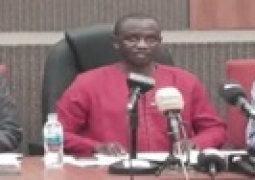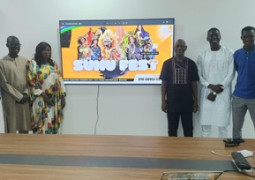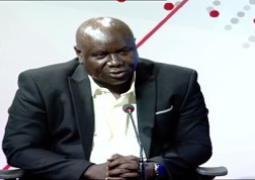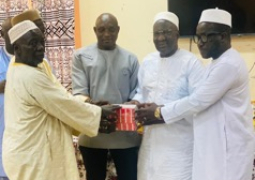It was aimed to enhance the understanding of these youth on civic rights, duties and public resource management to responsibly assume their roles in national development. Organised by NCCE, the long-day sessions that brought together young people to discuss the topic about leadership and civic rights, was wrapped up at Lower River Region (LRR).
The meeting was supported by United Nations Children’s Fund (UNICEF) through the UN Peace-Building Fund (UNPBF) – under the theme: “Nurturing patriotism and responsible citizenship among the young people.’’ The conclusion was held on 29th and 30th August 2021, at Mansakonko conference hall and Kwinella, Kinag Central LRR.
“The training was meant to nurture patriotism and responsible citizenship among the young people, who are absolutely the future of the country. This is also the second time this activity was funded by the same partners,’’ said Mr Ansumana Ceesay, Senior Programme Officer for NCCE, in his welcome statement.
He explained that the activity involves two trainings in each of the three selected administrative regions of Upper River, Central River and Lower River Regions, making it six trainings in totality, saying about 240 participants across the selected regions have benefitted from these sessions.
He added it is evident that young people are largely left out when critical national issues are discussed. And the few interventions in which young people are involved, the out of school youth are left out, that is why NCCE found it prudent to target this critical mass of young people in the society.
Mr. Ceesay pointed-out that each generation has a duty to pass on to the next not only as a full functioning government responsive to the needs of the people but also the tools and skills to understand and improve it, saying without extensively and actively consulting and listening to each other especially young people “the youth, their views and needs, policy-making and development processes become one-sided and hence will fail to serve the greatest good of all in the country.”
“Gambia is set to hold presidential elections on 4th December. This will be a crucial moment to consolidate and cement the democratic journey of our land. But it is also coming at a time when the country is deeply polarised. There is a rising tide of ethnic and religious-based hate speeches on the airwaves and social media, which pose the risk of creating social and political instability that can disrupt the progress of this country and cause chaos,’’ he explained.
For his part, Lamin Saidy, youth rep. for SOS Vocal-person in Soma, urged the participants to focus and fully concentrate on the topics that would be presented to them, saying that that was ‘timely and important,’ while calling on them (participants) to also filter the information to their inopportune colleagues.
Buba B.F. Jobe, a trainee and native of Jarra Karantaba said “I see this training very educative because of its significance and also what we got from it was very outstanding as a lot of things that we went through were exactly what youths needed to know about their civic rights and responsibilities.”
According to him, the rights, leadership and duties of youths is very essential as well as how youths should love their country not only by words but also by action. “The NCCE today made us understand the we have a big role as far as the country’s development is concerned which has boosted our confidence, morale and sense of belonging,” he noted.
Awa Jobe, another native of Jarra Karantaba highlighted that “It is a great opportunity to be part of this august training that has today brought a lot of information to our attention that I never knew as a citizen of this country.
“Considering the importance of this training, I believe we would need more of them at least every four or six months to enlighten us more about our civic rights, duties and responsibilities and also give chance to our colleagues who weren’t opportune to take part in today’s training their chance,” she suggested.





